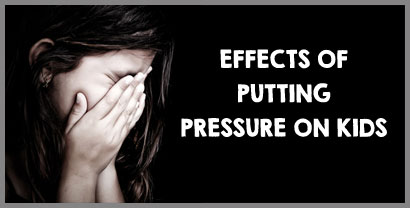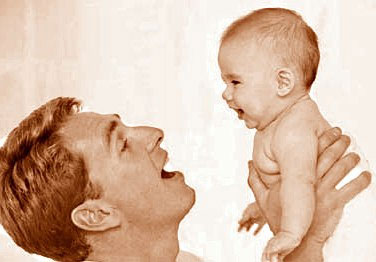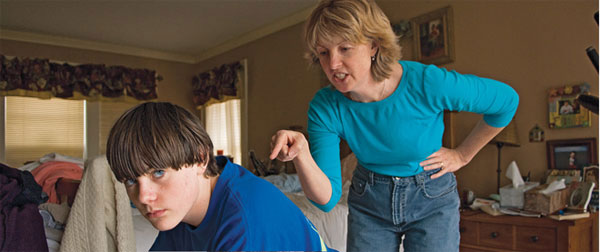Don't push your child too hard to achieve. It can have disastrous consequences. Help your child have a more balanced approach to education. Last year I was in the office when I got a phone call. It was from my wife Madhavi. Her voice was shaking.
"Ramen, Mr. Tripathy's daughter has committed suicide. Come home soon, we need to go over."
Mr. Tripathy was Madhavi's senior colleague in the Purchase Department. His wife was a physician. Later we heard that the girl, a student of class ten, had been exceptionally good in studies. Her math paper had not gone well in the board examination, and as a result her overall percentage, and her class rank, had slipped. The day after the result was announced, she hung herself.
Every year we read in the newspapers or see on the television news of numerous cases of children seeking psychiatric help, resorting to drug abuse and even committing suicide. We are swamped with images of young impressionable souls fighting to regain their sanity and struggling to survive. Who is to blame for this state of affairs? We as parents cannot absolve ourselves completely.
Many parents treat their child like a performing animal - someone through whom they can meet their unfulfilled aspirations, someone whose achievements they can wear like a badge on their chest, and someone whose brilliance can enhance their status in the society. Today, competition is the key word and the so-called rat race starts in nursery itself. Every parent wants his kid to be not only the best, but better than his neighbour's or his colleague's child.
The child is monitored every hour and every minute of the day- what he studies, what he plays, what he eats, what he reads, what he sees - to get the best results. It is not academics alone that the child has to excel in - the child of the 21st century has to be a blend of Einstein, Beethoven, Da Vinci and Tendulkar. Coaching for studies, music and painting alone will not suffice, he or she has to also be trained in cricket or football or any other sport which offers the possibility of greater name, fame and monetary gain in future. In this circus of school, tuition, coaching and training the child has hardly any time for himself. But no one cares. In fact we are smothering the 'child' in every child and turning out efficient robots or performing monkeys.
Putting the entire onus on parents is also not quite correct. One should not forget that in today's world of increasing population, decreasing opportunities and cut throat competition the law of the jungle reigns supreme. And in the concrete jungles this law reads: survival of the smartest. Aspirations have risen and so have the needs. Yesterday's luxuries have become today's necessities. In this scenario all the well-meaning parents want their children to do the best to get the best. In this process of aiming for the sky the ground realities are forgotten, as a result we have fractured hopes, unrealised dreams and life itself becomes a nightmare.
What then is the solution? Obviously there are no quick fixes. Like in all other areas of parenting, balancing the child's work and play, the development of the personality with the growth of the career, the internalising of values with the pursuit of success, needs a dexterity which would put the skill of even the most nimble juggler to test. I have a few pointers which, if kept in mind, can help the parents achieve some semblance of balance:
Maintain a healthy synergy between work and play. Help your child develop a well-rounded personality with interests in academics as well as hobbies and sports.
Do not indulge in comparisons either with peers or with yourself. This demotivates the child. Avoid statements like: "See Sunil, his mother hardly pays any attention and yet he comes first in class. And here I spend half my life running after you and you don't even make it to the top three." "When I was your age I used to study eight hours a day, in a room that had neither air cooler nor air conditioner."
Do not generalise. "You don't concentrate enough. You can achieve nothing in life."
Do not be obsessed with results. Rather make sure your child rises to her potential. As Dr. Robert Schuller says, "Failure is not failure to meet your goal. The real failure is not to reach as high as you possibly can."
While deciding on career goals keep in mind your child's interests as well as your own aspirations. Remember that an average child who is pursuing the career of her own interest will be far more successful than an above average child who is being forced to do something which she is not keen about.
When the results are announced never show your disappointment to your child. Your reaction will have a more telling impact on her than the results. The fear that she has let you down will me far more psychologically damaging than the poor marks per se. This is the time when she needs your support the most. Rather than admonishing her or expressing your anguish you should stand by her side.
Try to be a friend to your child even while making the distinction between friendship and familiarity very clear. Try to be her confidant - someone with whom she can share life's "sobs, sniffles and smiles".
Some children are self-driven, and in this case teach them that if they ever fail in achieving something they want, they should try and learn what they did wrong. Teach them that failure too can be a great teacher. As Robin S. Sharma says in The Monk Who Sold his Ferrari, "It is a fundamental law of nature to profit through loss. Never fear failure. Failure is your friend."
Never measure the worth of your child in terms of her performance. Even if she is not brilliant in computers or a great painter, even if she is not good in tennis or a computer wizard she is your child and like all children very special. Even in her ordinariness she remains a beautiful creation of God - one to be loved and cherished forever.
The immortal Greek Philosopher Plato said, "We can easily forgive a child who is afraid of the dark; the real tragedy of life is when adults grow afraid of the light."
We parents as responsible adults should move away from thethe narrow confines of ambition and competition and move into the realm of love, empathy and trust. Only then will we be able to create a world where our children will be able to grow up with freedom and joy without feeling smothered and stifled.

































